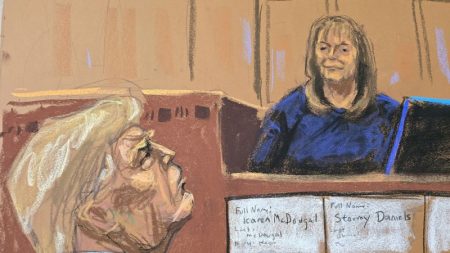A recent poll conducted by Quinnipiac University found that a slim majority of Americans, 51%, support a House bill that would ban TikTok if the platform is not sold to a company without ties to the Chinese Communist Party. Only 41% of respondents support an outright national ban on TikTok, with 47% opposing it. However, when broken down by age, younger Americans between 18 and 34 years old are more likely to oppose the legislation, with 60% opposing it and only 35% in support. The poll was conducted via telephone interviews with 1,569 U.S. adults, reporting a margin of error of 2.5%.
Earlier this month, the House of Representatives passed legislation requiring TikTok to divest itself of CCP control or face a ban in the U.S. The bill, led by House China Select Committee Chair Rep. Mike Gallagher, R-Wis., and ranking member Rep. Raja Krishnamoorthi, D-Ill., would block TikTok in the U.S. if its parent company, Bytedance, does not divest within 165 days of passage. Critics of TikTok have long raised national security concerns, citing worries about the Chinese government’s potential access to sensitive user data through its control over Bytedance. Despite TikTok’s denial of providing such access, China hawks have expressed concerns about the app’s popularity among young Americans as a platform for Chinese influence.
Opponents of the bill, including young people and activists, have actively protested against restrictions on TikTok. Prior to the House vote, Congress received a flood of phone calls and messages from those urging lawmakers not to restrict the platform. Some callers even made threats of suicide, expressing their reliance on TikTok for daily use. Rep. Chip Roy, one of the bill’s lead co-sponsors, shared that the intense reaction to the potential ban resembled a fervent response akin to an addiction support group. Despite the backlash, the bill passed through the House with a strongly bipartisan vote of 352-65.
The House legislation targeting TikTok is part of a larger scrutiny of Chinese technology companies operating in the U.S. Lawmakers have raised concerns about potential national security threats and data privacy issues associated with these companies, particularly those with ties to the Chinese Communist Party. Calls for TikTok to be sold to a company without CCP ties have intensified as a strategy to mitigate these risks. The bill’s sponsors emphasized the importance of protecting American interests and technological assets from foreign influence, especially through popular social media platforms like TikTok.
Critics of TikTok’s potential ban argue that it would infringe on free speech and limit access to a popular platform for millions of Americans. The app has garnered a massive following, particularly among young users who value its entertainment and social interaction features. As the debate over TikTok’s ownership and potential ban continues, stakeholders from various sectors are closely monitoring developments and advocating for outcomes that balance national security concerns with user interests. The bipartisan support for the House bill reflects a collective effort to address cybersecurity threats posed by foreign entities while navigating the complexities of digital technology and social media influence.















